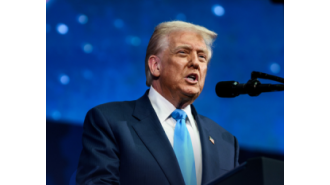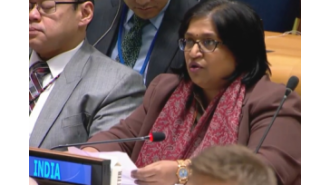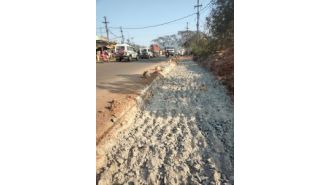The Amazon was plagued by fires, deforestation, and drought in 2024.
In 2024, the Amazon rainforest's fires and drought may signal a dangerous ecological tipping point, according to Andrew Miller, advocacy director at Amazon Watch.

In 2024, the Amazon rainforest was hit hard with wildfires and drought, causing devastating effects on the critical biome that plays a major role in mitigating climate change. The warming climate led to severe drought, which in turn fueled the worst year for fires since 2005. These fires also contributed to deforestation, with some authorities suspecting that they were deliberately set to clear land for cattle ranching.
The Amazon rainforest is a massive ecosystem that covers twice the size of India and spans across eight countries and one territory. It serves as a crucial carbon sink, holding vast amounts of carbon dioxide that would otherwise contribute to global warming. It is also home to 20% of the world's fresh water and an incredible diversity of plant and animal species, including 16,000 known tree species. However, despite its importance, the Amazon has historically been viewed as a resource to be exploited, with little consideration for sustainability or the rights of its Indigenous peoples. Experts warn that the exploitation of the rainforest by individuals and organized crime is on the rise at alarming rates.
Andrew Miller, advocacy director at Amazon Watch, a nonprofit organization dedicated to protecting the rainforest, expressed concern about the situation, saying, "The fires and drought experienced in 2024 across the Amazon rainforest could be ominous indicators that we are reaching the long-feared ecological tipping point. Humanity's window of opportunity to reverse this trend is shrinking, but still open."
There were some positive developments in the midst of this crisis. Both Brazil and Colombia saw a decrease in deforestation rates, and at the annual United Nations conference on biodiversity, nations agreed to give Indigenous peoples more say in conservation decisions. Miller emphasized the importance of Indigenous communities in the fight to protect the Amazon, stating, "If the Amazon rainforest is to avoid the tipping point, Indigenous people will have been a determinant factor."
However, the threats to the Amazon continue to persist. Brazil, home to the largest portion of the rainforest, saw a 30.6% decrease in forest loss under the leadership of leftist President Luiz Inácio Lula da Silva. This was a significant improvement from the previous year, when deforestation reached a 15-year high under the far-right leader Jair Bolsonaro, who prioritized the expansion of agribusiness over forest protection and weakened environmental agencies.
In Colombia, a drop in deforestation was reported in 2023, but by July of 2024, there was already a significant increase due to dry weather caused by the El Nino weather phenomenon. Illegal economies, such as illegal gold mining, continue to drive deforestation in the country, with consultant Bram Ebus stating, "It's impossible to overlook the threat posed by organized crime and the economies they control to Amazon conservation."
The situation in Brazil was particularly dire, with widespread fires across the Amazon, Cerrado savannah, Pantanal wetland, and Sao Paulo state. These fires, often used for deforestation and land management, were responsible for igniting the wildfires. The Amazon River also reached dangerously low levels for the second year in a row, leading some countries to declare a state of emergency and provide aid to struggling communities.
Cesar Ipenza, an environmental lawyer living in the Peruvian Amazon, noted that people are becoming increasingly aware of the Amazon's crucial role in society, but he also expressed concern about a "point of no return of Amazon destruction." The nonprofit Rainforest Foundation US reported that 2024 was the worst year for Amazon fires since 2005, with an area larger than the state of Iowa burning in Brazil alone. Bolivia also experienced a record number of fires in the first ten months of the year.
The issue of Indigenous rights and voices also gained momentum in 2024, with the United Nations conference on biodiversity, hosted by Colombia, making a historic agreement to give Indigenous groups more say in conservation decisions. Martin von Hildebrand was appointed as the new secretary general for the Amazon Treaty Cooperation Organization, and both Ebus and Miller see this as a positive development. Ebus stated, "As an expert on Amazon communities, he will need to align governments for joint conservation efforts. If the political will is there, international backers will step forward to finance new strategies to protect the world's largest tropical rainforest."
Ebus also emphasized the need for cooperation between Amazon countries, as well as support from the rest of the world, saying, "The well-being of the Amazon is a shared global responsibility, as consumer demand worldwide fuels the trade in commodities that finance violence and environmental destruction." Next year will be critical for the Amazon, as it will host the first United Nations COP in the region, focusing on climate change. Ebus believes that this is an opportunity for Amazon countries to showcase their strategies and demand support from the international community.










